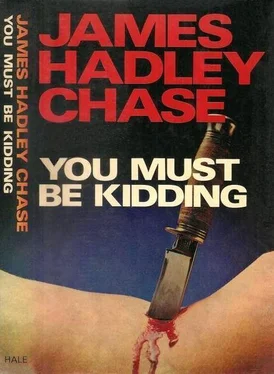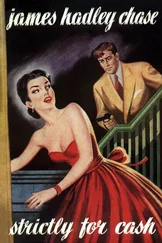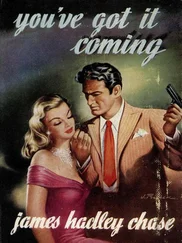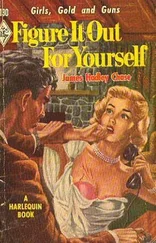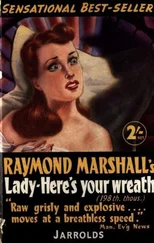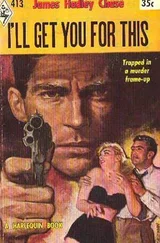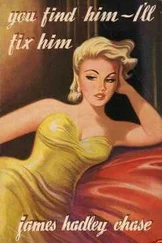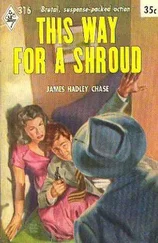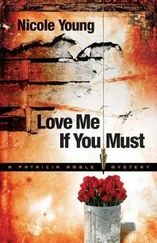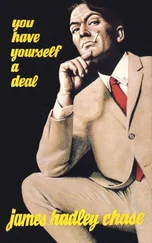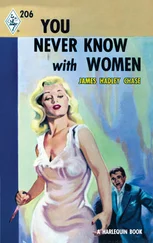What a nightmare Sunday had been! He had read in the paper that Lu Boone had been murdered. Shocked, yet relieved that there would now be no blackmail threat, he turned on the radio. He then heard of Karen’s murder. This news shattered him, and he was scarcely civil to his sister-in-law who had said, ‘She asked for it, living in a hippy cabin. I wouldn’t be surprised if she was no better than a whore.’ He had telephoned Jefferson Sternwood but he was unavailable. Sternwood’s secretary thanked him for his call and said she hoped he would be at the Secomb office on Monday, adding that Mary Goodall was to replace Karen.
Now that Judge Lacey was out of danger, Ken couldn’t wait to get home. Betty had been contacted by Dr. Heintz who asked impatiently when he could expect her. They decided to leave on the afternoon plane.
As they sat side by side in the plane, the mystery of the missing golf ball button was solved. Betty looking in her bag for a cigarette, gave a little laugh and produced the button.
‘Look, darling. I carry this around as my talisman.’ She put her hand on his. ‘It’s something that belongs to you.’
Ken, remembering his panic, remembering how Karen had got him another button, remembering how drunk he had been, and remembering he had taken Karen into Betty’s and his bed, had trouble in forcing a smile.
Now, sitting at his desk, he thought back on that Sunday. Karen was dead. Lu Boone was dead. This disloyal, disgraceful episode in his married life was now behind him. Clenching his fists, he swore to himself that it would never happen again.
On the other side of the city, Lepski parked his car within a few yards of Kendriek’s gallery. He walked in to be met by Louis de Marney, pale, but with a false smile of welcome.
‘Mr. Lepski! How nice! Mr. Kendriek is expecting you.’ He led Lepski into Kendriek’s reception room.
Kendriek, beaming like an amiable dolphin, rose from behind his desk and offered a fat hand, but Lepski was in no mood for this kind of greeting.
Ignoring the offered hand, he said in his cop voice, ‘What have you got for me?’
‘Please sit down, Mr. Lepski. Let us conduct this conversation in a civilized manner,’ Kendriek said, losing his smile. He sat down.
After hesitating, Lepski took the visitor’s chair, facing Kendriek.
‘Mr. Lepski, please understand that I have to protect my clients. You are asking for the name of the artist who painted this picture. That, of course, is a fair question from the police, but this artist made me promise not to reveal his name. Many artists ask me for anonymity. This may seem strange to you, but I assure you it often happens.’
Lepski glared at him.
‘So you know who he is?’
Kendriek took off his wig, stared at the inside of it as if he expected to find in it an ant’s nest, then he replaced it, askew.
‘Yes, Mr. Lepski. I know the name of the artist.’ He leaned forward, his little eyes like stones. ‘If you will explain to me why you think this artist has something to do with these murders, and if you can convince me that you have definite evidence against this artist, then, of course, I will reveal his name.’
Lepski shifted in his chair. How the hell could he tell this fat queer about this rum-dum Mehitabel? How could he even tell Terrell about her? A red moon! A black sea! An orange sky!
Seeing Lepski hesitate, Kendriek moved into the offensive.
‘Perhaps, Mr. Lepski, it would be better if Chief Terrell talked to me. I have always found him understanding.’ The dolphin smile was back. ‘Suppose, if I may suggest, you speak to your Chief, then he could, if he feels it necessary, speak to me.’
Realizing he was defeated, Lepski got to his feet.
‘Okay, Kendriek,’ he snarled. ‘So you don’t give us information. I’ll remember this. When you are in trouble, you’ll be in real trouble,’ and he stormed out of the gallery.
Kendriek took off his wig and threw it up to the ceiling.
As Louis, who had been listening, came in, Kendriek beamed at him.
‘You see, cheri, this stupid cop was bluffing!’
By 10.30, Ken Brandon had cleared his desk, had talked over the telephone to his sales director, and now decided, he would go on a hunt for new business.
As he was pushing back his chair, Mary Goodall came in.
‘There’s a detective wanting to speak to you, Ken. Detective Lepski.’
‘Send him in, Mary,’ Ken said, his heart beginning to race.
Lepski came in, wearing a wide, friendly grin that didn’t reach his hard cop eyes.
‘Hi there, Mr. Brandon!’ he said. ‘I’ve brought your jacket back.’
Ken gulped, forced a smile as he said, ‘Thank you. I hope no further trouble.’
Lepski put the jacket on Ken’s desk.
‘The spare buttons are in the pocket, Mr. Brandon.’
‘Thank you.’
‘No problem now,’ Lepski went on. ‘I’m sorry to have worried you.’
‘Well, you have a job to do,’ Ken said.
‘Yeah. This news about Miss Sternwood must have been a shock.’
‘Yes. Is that all, Mr. Lepski? I’ve just got back and I have a work load.’
‘I’m hoping you can help me,’ Lepski said. ‘This won’t take long. Does the name Cyrus Gregg mean anything to you?’
Ken stared at him.
‘Of course. He was one of my clients. He died some months ago.’
‘You handled his insurance?’
‘That’s right.’
‘Did Mrs. Gregg continue the coverage?’
‘Yes. The policy has an automatic renewal.’
‘There’s a son. What do you know about him, Mr. Brandon?’
‘I have had no dealings with him.’ Ken moved impatiently. ‘What is this all about?’
‘Have you ever seen him?’
‘No.’
‘Know anything about him?’
‘I know nothing about him. I’ve never seen him. So what is this all about?’
Lepski sat astride one of the upright chairs.
‘I’ll explain. Sit down for a moment, Mr. Brandon. This is important.’
Bewildered, Ken sat behind his desk.
‘We found a golf ball button right by where Janie Bandler was murdered,’ Lepski said. ‘We found that there were only four jackets with these special buttons sold in the city. We have checked out three of the jackets, including yours, and we know that you and the other two owners of the jacket have had nothing to do with Janie’s murder. We were told by Mrs. Gregg that the fourth jacket, together with Mr. Gregg’s other clothes, was given to the Salvation Army. We have been trying to trace this jacket, but no one at the Salvation Army has handled it. We are now wondering if Mrs. Gregg lied to us. We are wondering if her mysterious son kept his father’s jacket and wore it on the night of Janie’s murder. We have a description of a man, seen wearing the jacket on the day Janie was murdered. He has been described as tall, blond and wearing Gucci shoes. We have further information that this man could be an artist, painting way-out landscapes. This man is responsible not only for Janie’s murder, but for Lu Boone’s and Miss Sternwood’s murders. You with me so far?’
Ken eased himself back in his chair.
‘I hear you,’ he said, ‘but what has all this to do with me?’
‘All this I’m telling you is surmise. We don’t know for sure that Gregg’s son is the man we want. Mrs. Gregg draws a lot of water in this city. She has the ear of the Mayor. We want definite evidence that her son is an artist, is tall and blond and wears Gucci shoes. If we get those facts, we can interrogate him, but not before.’
‘I would have thought the simplest thing is for you to go to Mrs. Gregg’s place and ask to speak to her son,’ Ken said. ‘What’s the matter with that?’
‘If it was that simple, I wouldn’t be taking up your time,’ Lepski said. ‘But it isn’t. Mrs. Gregg is tricky. Suppose her son has nothing to do with the murders? Suppose she refuses to let us see him, asking why we want to see him? We have no real proof so we could be in a bind. Now, Mr. Brandon, here’s what I’m asking you to do. Will you go to the Gregg’s place and ask to see the son? Say you understand he has valuable paintings and he might like to insure them. We must know he is an artist and he matches up with this description we have: tall, blond, and possibly, wearing Gucci shoes.’
Читать дальше
